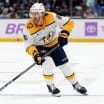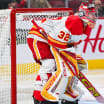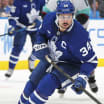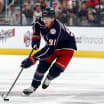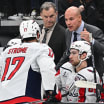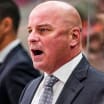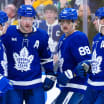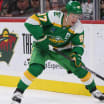Guy Carbonneau called it "an unbelievable honor and true privilege" to be inducted into the Hockey Hall of Fame, his plaque having been presented by Bob Gainey, both a template and mentor throughout his career.
"As a kid, I was dreaming about playing in the NHL, dreaming of winning the Stanley Cup, dreaming of scoring a goal in the playoffs. Somehow, as we make our way through the hockey ranks, we learn how to react to different things. When we get drafted, when we play our first game, when we score our first goal, and for the lucky ones, when we finally win the Cup. But being inducted in the Hall of Fame? Never in my wildest dreams."
Carbonneau brought his audience up the St. Lawrence River to Sept-Iles, where "like all kids in Quebec, rumor has it I learned to skate before I could even walk."
For 10 minutes, he switched seamlessly from English to French and back, thanking his minor and junior hockey teams, coaches, community volunteers, billet families, and the friends and teammates he made on the way to the NHL. He liberally spread credit for his success to coaches and managers and teammates at every level, from the minor pros into the NHL, "especially Jacques Lemaire (of the Montreal Canadiens) for believing what I could do on the ice and molding me into the player that got me here today."
Carbonneau recalled being drafted by the Canadiens, having spent his childhood "watching Habs games on TV, looking at [Jean] Beliveau and [Guy] Lafleur's every move, and of course, witnessed their Stanley Cup parades." He spoke of moving on to the St. Louis Blues and Dallas Stars, the last stop where he won his third and final championship, and of now carving out a post-hockey career as a broadcaster for French-language RDS.
"I had the chance of playing against great players," he said, naming a handful. "Guys who made me work and sweat for every inch every night and reminded me that success is not something you achieve in one night, but over the course of many years."
Family is the cornerstone of Carbonneau's life; many were in attendance, and he had special, emotional words of thanks and praise for his wife, Line.
"The good part now," he finished, "is when people ask me in the street if I'm in the Hockey Hall of Fame, my answer will be yes."
